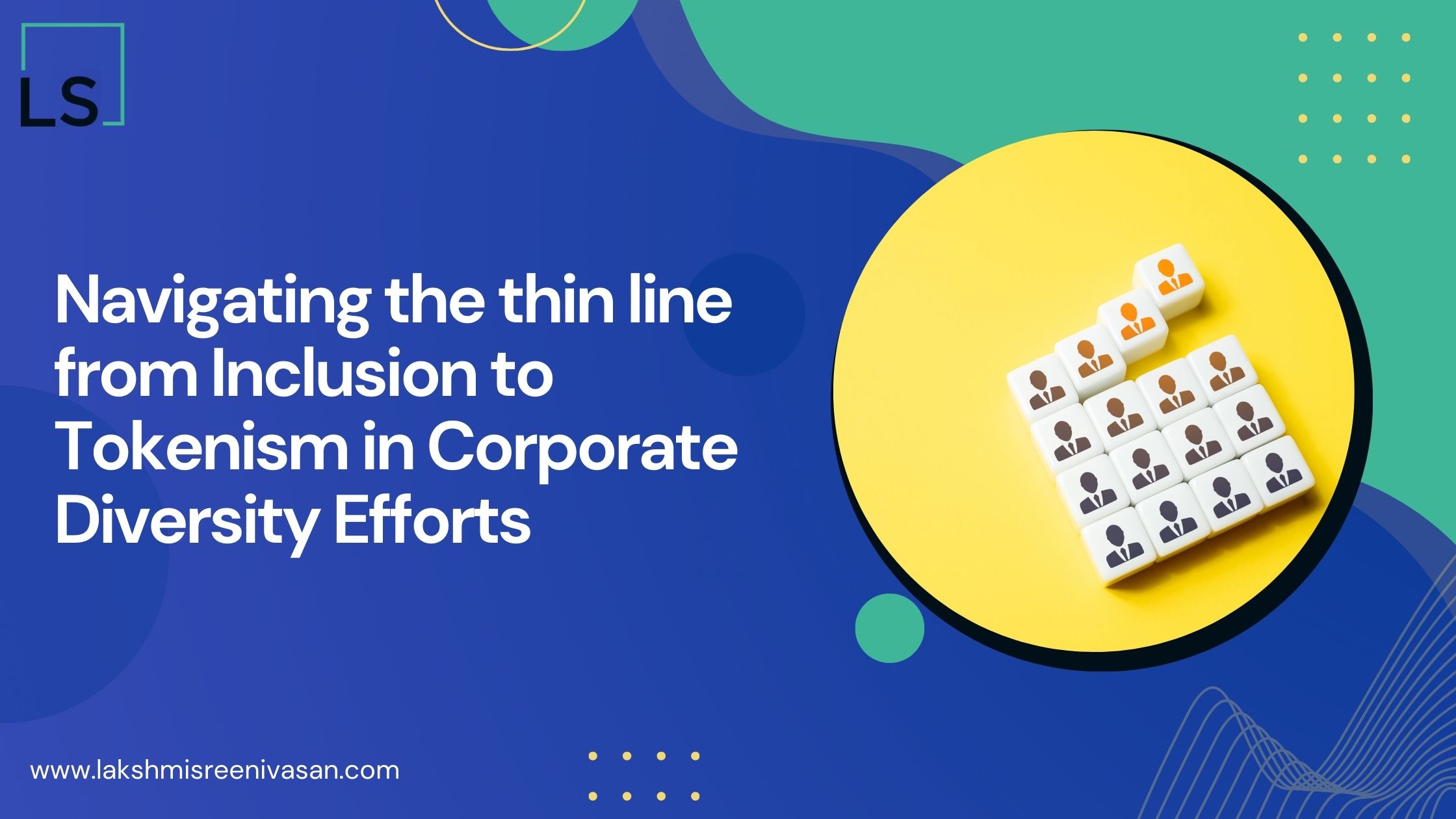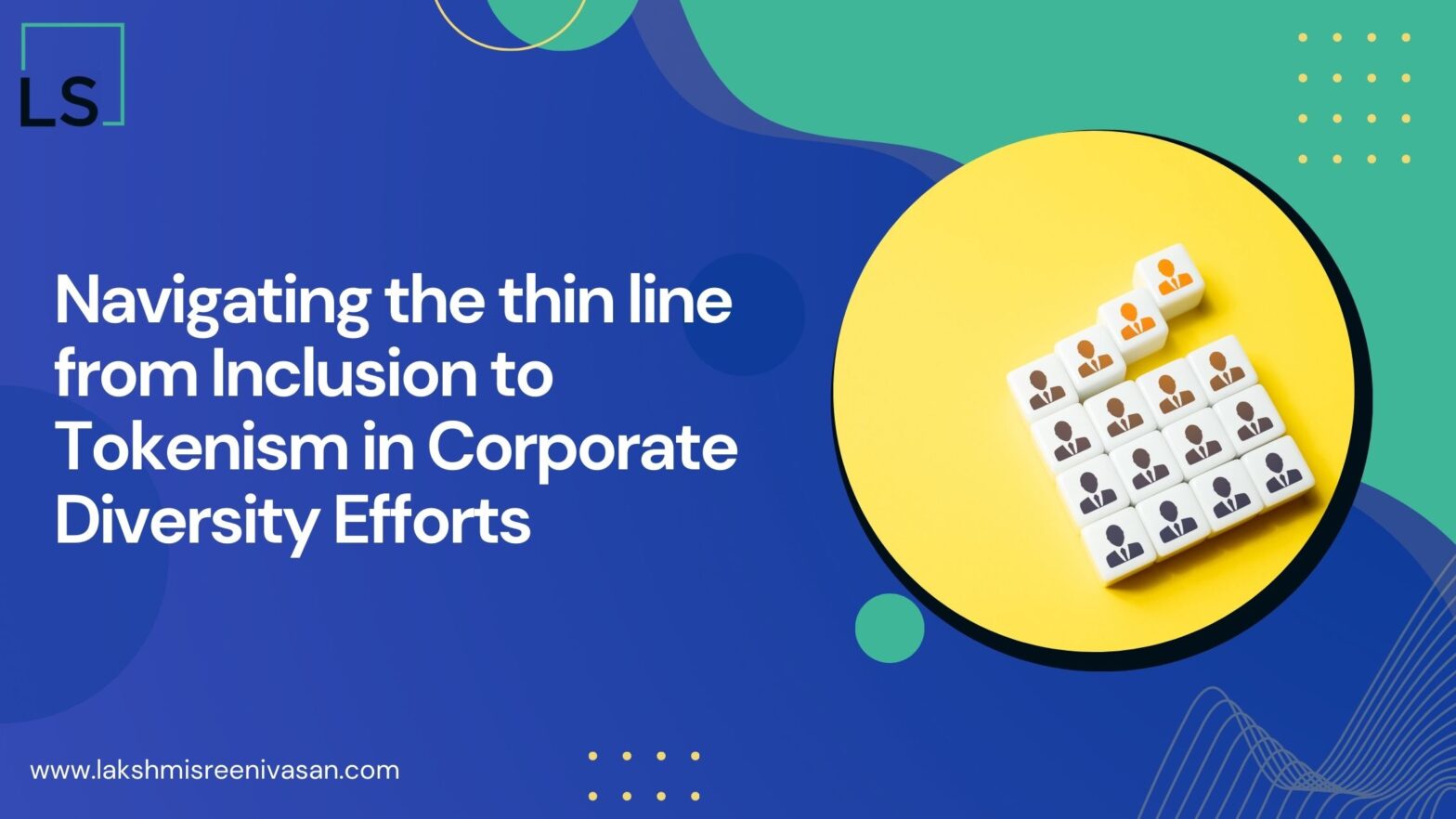
Many organisations today proudly champion diversity and inclusion initiatives. Yet, the path to a truly inclusive workplace is likely to bring unforeseen pitfalls. One such pitfall is tokenism, a deceptive practice that creates the illusion of inclusivity without addressing the underlying issues.
Lakshmi Sreenivasan, a renowned OD Consultant and champion of Diversity & Inclusion at LS Learning Management Systems sheds light on this critical distinction and offers practical strategies to navigate the thin line between genuine inclusion and tokenism.
Imagine a company striving to add diversity to its leadership team. Instead of making targeted changes to tackle systemic obstacles, they choose one person from an underrepresented group for a prominent role. While this action may appear like progress on the surface, it often results in the individual being tokenized, making them feel isolated and unsupported. This scenario illustrates how tokenism can obscure inequalities within organisations.
Another form of tokenism commonly observed is in diversity programs or events prioritizing appearances over impact. For example, conducting a one-time diversity training session without efforts to combat biases and promote equal opportunities can perpetuate tokenism rather than authentic inclusion. Similarly, organising a diversity event that showcases representation without addressing hurdles, fails to drive meaningful change.
Tokenism can manifest as superficial allyship, where companies engage in gestures without committing to substantial action. This might involve showcasing marginalized individuals in marketing materials or campaigns without tackling the underlying inequalities within the organisation. These actions could boost the organisation’s reputation without making strides in promoting inclusivity.
Organisations should prioritize changes addressing inherent biases and obstacles to combat tokenism and champion inclusion. This requires implementing policies and practices prioritizing fair treatment and equal opportunities for all employees. Additionally, organisations need to amplify the voices of marginalized individuals and ensure their involvement in decision-making processes.
For instance, rather than making hires just to meet diversity quotas, organisations should focus on creating avenues for career growth and offering mentorship and sponsorship opportunities for underrepresented employees. Organisations can create environments where diversity is truly valued and welcomed by fostering a sense of inclusion where employees feel respected and encouraged to be their true selves.
In summary, while diversity is crucial, genuine inclusion goes beyond representation. It demands a dedication to addressing inequities and cultivating a culture of belonging for everyone. By identifying the indicators of tokenism and taking measures to tackle them, organisations can pave the way for inclusivity and build workplaces where diversity flourishes.
Ready to embark on your journey towards authentic inclusion? LS Learning Management Systems offers a comprehensive suite of services, from experiential learning workshops designed to combat unconscious bias to customized leadership development programs that empower diverse leaders to thrive.
Schedule a consultation with us here or write to team@lakshmisreenivasan.com to discuss how LS Learning Management Systems can help you build a more inclusive and successful organisation.

